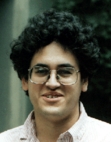John C. Baez's Blog, page 59
May 4, 2018
Thermodynamics of Computation
David Wolpert of the Santa Fe Institute has set up a website on the thermodynamics of computation:
• Thermodynamics of Computation Wiki.
Here’s the idea:
This website is the result of a successful meeting at SFI which brought together researchers from diverse disciplines including biology, computer science, physics, bioinformatics, and chemistry to discuss overlapping interesting in thermodynamics and computation.
The thermodynamic restrictions on all systems that perform computation provide...
April 30, 2018
Applied Category Theory 2018 – Videos
Some of the talks at Applied Category Theory 2018 were videotaped by the Statebox team. You can watch them on YouTube:
• David Spivak, A higher-order temporal logic for dynamical systems. Book available here and slides here.
• Fabio Zanasi and Bart Jacobs, Categories in Bayesian networks. Paper available here. (Some sound missing; when you hit silence skip forwards to about 15:00.)
• Bob Coecke and Aleks Kissinger, Causality. Paper available here.
• Samson Abramsky, Games and constraint satis...
Applied Category Theory 2018 – Live
This week you can watch live streaming video of the ACT2018 workshop whenever a talk is going on:
Thanks to Jelle Herold and the Statebox team for doing this!
The schedule of talks is below; the times are those in the Netherlands – that is, GMT +1, or Central European Time.
The videos will also be available permanently on YouTube here:
The sound was not recorded from 10:38 to 15:00, so you may want to skip that portion. Sorry!
April 27, 2018
Props in Network Theory

Long before the invention of Feynman diagrams, engineers were using similar diagrams to reason about electrical circuits and more general networks containing mechanical, hydraulic, thermodynamic and chemical components. We can formalize this reasoning using ‘props’: a certain kind of categories whose objects are natural numbers, with the tensor product of objects given by addition. In this approach, each kind of network corresponds to a prop, and each network of this kind is a morphism in th...
April 17, 2018
Applied Category Theory at NIST (Part 2)
Here are links to the slides and videos for most of the talks from this workshop:
• Applied Category Theory: Bridging Theory & Practice, March 15–16, 2018, NIST, Gaithersburg, Maryland, USA. Organized by Spencer Breiner and Eswaran Subrahmanian.
They give a pretty good picture of what went on. Spencer Breiner put them up here; what follows is just a copy of what’s on his site.
Unfortunately, the end of Dusko Pavlovic’s talk, as well as Ryan Wisnesky’s and Steve Huntsman’s were lost due to a t...
April 12, 2018
Applied Category Theory 2018 Schedule
Here’s the schedule of the ACT2018 workshop:
Click to enlarge!
They put me on last, either because my talk will be so boring that it’s okay everyone will have left, or because my talk will be so exciting that nobody will want to leave. I haven’t dared ask the organizers which one.
April 7, 2018
Applied Category Theory Course: Ordered Sets

My applied category theory course based on Fong and Spivak’s book Seven Sketches is going well. Over 250 people have registered for the course, which allows them to ask question and discuss things. But even if you don’t register you can read my “lectures”.
Here are all the lectures on Chapter 1, which is about adjoint functors between posets, and how they interact with meets and joins. We study the applications to logic – both classical logic based on subsets, and the nonstandard version of...
Applied Category Theory Course – Chapter 1
My applied category theory course based on Fong and Spivak’s book Seven Sketches is going well. Over 250 people have registered for the course, which allows them to ask question and discuss things. But even if you don’t register you can read my “lectures”.
Here are the lectures on Chapter 1, which is about adjoint functors between preorders, and how they interact with meets and joins:
• Lecture 1 – Introduction
• Lecture 2 – What is Applied Category Theory?
• Lecture 3 – Chapter 1: Preorders
...
Applied Category Theory Course (Part 2)
My applied category theory course based on Fong and Spivak’s book Seven Sketches is going well. Over 250 people have registered for the course, which allows them to ask question and discuss things. But even if you don’t register you can read my “lectures”:
• Lecture 2 – What is Applied Category Theory?
• Lecture 3 – Chapter 1: Posets.
• Lecture 4 – Chapter 1: Galois Connections.
March 25, 2018
Applied Category Theory Course
It just became a lot easier to learn about applied category theory, thanks to this free book:
• Brendan Fong and David Spivak, Seven Sketches in Compositionality: An Invitation to Applied Category Theory.
I’ve started an informal online course based on this book on the Azimuth Forum. I’m getting pretty sick of the superficial quality of my interactions on social media. This could be a way to do something more interesting.
The idea is that you can read chapters of this book, discuss them, try...
John C. Baez's Blog
- John C. Baez's profile
- 29 followers



